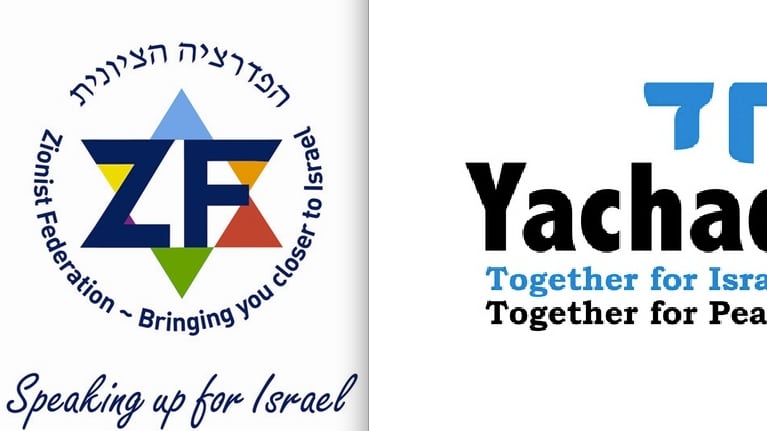As is the way in diaspora Jewish communities, every so often a public division emerges, highlighting the lack of unity within the community. Israel is often at the heart of the split. Everyone will line up on his or her chosen side. Sometimes that will not be the side of an individual’s personal politics, but one that expresses a point of principle: "I don’t agree with what you have to say but I’ll die defending your right to say it." It’s a way to pay homage to a value Jews hold so dear: democracy.

Why is it, when it comes to Israel, we get so confused? We behave like a rabbit blinded by headlights and run wildly off course. We tell people, proudly, that there are free and fair democratic elections in Israel (if you live inside the green line of course, or as a Jew over the green line) in which 1.5 million Palestinian citizens of Israel can vote. Unlike surrounding countries, the Israeli government doesn’t silence the opposition. There is a vibrant press and civil society. And then, almost in the same breath, we tell others that it would be much more favorable if they just kept quiet when it came to Israel. They might do some damage to the monolith of Zionism we’d prefer to present to the wider world. They might express public disagreement with some of the policies of the government of Israel and that would be unhelpful. It would be better for everyone all round, if they could just keep shtum, and if they are incapable of doing that, we’ll help them by making sure there’s no room at the communal table.
It’s formulaic behavior; it’s almost like it’s written in our rule-book. That’s why it is hardly a surprise that when Yachad, the organisation of which I am the director (and, for those in the U.S. that may be reading, the closest comparison is J Street), applied to become an affiliated organisation of the Zionist Federation, the answer we received earlier this week was a clear rejection. The Zionist Federation is, according to their own definition, "the umbrella organisation for the Zionist movement in the United Kingdom, representing more than 120 organisations, and over 50,000 affiliated members." It is through the Zionist Federation that Anglo-Jewry is represented at the World Zionist Organization.
An almost 10 month process which required us to submit accounts and constitutions, to invite members of the Zionist Federation to attend our events to "check" our credentials, and endless back and forth e-mails, ended with a quick email from the chair telling us that "regretfully" we had not been accepted. The ins-and-outs of the process has been well-documented on the front pages of the Jewish Chronicle this week, and much of the established Jewish community has come down on the side of Yachad, in the support of our right to define as, and be represented within, the Zionist camp.
But process aside; it raises a very serious question about the so-called gatekeepers of Jewish communities worldwide. A number of people have asked me why Yachad even bothered to try and join. As far as they were concerned, it was quite clear the answer would be no, given the political bent of the Zionist Federation, and as Yachad is doing a fine job of representing the large numbers of Anglo-Jews who broadly speaking fall into the camp of the urgent necessity of ending the occupation and creating a two-state solution, we don’t need to affiliate. There was also great concern from some, that we would be forced to toe a line that did not reflect the will of our supporters.
But within those two points of concern and criticism lies the answer itself. Who got to decide that the Zionist Federation would represent only a certain type of Zionism? And who got to decide that the Zionist Federation could continue to present itself to the wider world as representative of Zionism in the U.K.? There is no reason, as far as I can tell, why in principle, this should be the case. And it’s for that exact reason we decided to apply to be members. Why shouldn’t supporters of Yachad be heard in one of our communal representative organisations?
The fact that we were rejected proves two things. Number one: the Zionist Federation long ceased to be an umbrella of Zionism in the U.K. It chose a brand of Zionism, and has created an organization around that brand. If that is what its members want to do, that’s fine, but let’s be clear—that’s not a federation. It is not representative of the community so it’s best the Zionist Federation does not purport to speak on behalf of the Jewish community when it comes to matters relating to Israel. And number two: the idea that you can keep people shtum through exclusion may have worked previously, but no longer. We live in a world of social media, online reporting and quick response. Lock the gates and barricade the fort, but those voices will be heard elsewhere. You might not have to sit next to them, but they certainly won’t be quiet.
So the gatekeepers have two choices: either unlock the gates and create more space at the table (and don’t expect silent dinner guests), or hold tight but be prepared for the fact that those that you exclude won’t just slip away quietly into the side-lines of the community as you might have hoped. The divisions unravelling within our community are a battle over what it means to be a Zionist in the 21st century. And that battle is far too important to retreat from.






